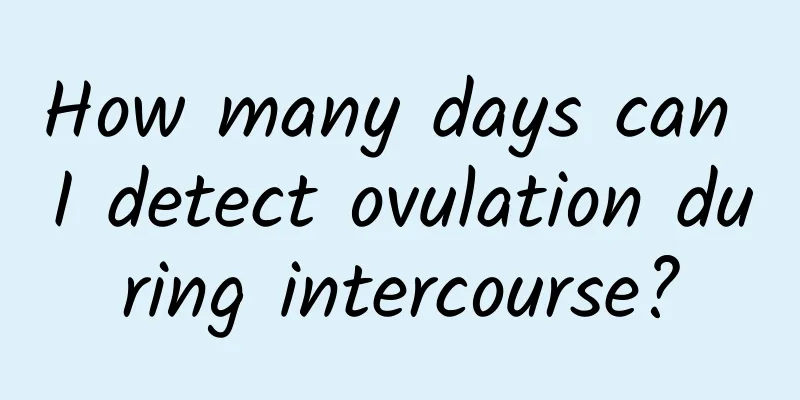Hypoxic-ischemic encephalopathy

|
Diseases are very harmful to human health. After discovering that you have a disease, you must seek timely treatment, otherwise the disease will become more serious. Many people do not know what method to choose when treating the disease. This requires a good understanding of the disease so that you know what method is best. What is hypoxic-ischemic encephalopathy? Many people are not very clear about this. Many people do not know much about hypoxic-ischemic encephalopathy, and after the disease occurs, they do not know its specific circumstances. However, after being diagnosed with the disease, they must actively cooperate with the treatment so that the disease can be improved. Hypoxic-ischemic encephalopathy: Hypoxic-ischemic encephalopathy is a common brain injury caused by cerebral hypoxia or ischemia due to various perinatal factors, and its main manifestations are changes in consciousness state and muscle tone. Depending on the severity of the disease, it can be divided into mild, moderate and severe. Mild and moderate symptoms include excitement or dullness, and normal or reduced muscle tone. Severe cases may cause coma, loose muscle tone, frequent convulsions, etc. It is often accompanied by serious sequelae such as cerebral palsy, epilepsy, learning difficulties, etc. Perinatal asphyxia is the main cause of this disease. Anything that causes obstruction of blood circulation and gas exchange between the mother and fetus, resulting in a decrease in blood oxygen concentration, can cause suffocation. 50% are caused by intrauterine asphyxia; 40% are caused by asphyxia during delivery; and 10% are caused by congenital diseases. (1) Maternal factors: pregnancy-induced hypertension, heavy bleeding, cardiopulmonary disease, severe anemia or shock, etc. (ii) Placental abnormalities: placental abruption, placenta previa, placental dysfunction or structural abnormalities, etc. (III) Fetal factors: intrauterine growth retardation, premature birth, post-term birth, congenital malformations, etc. (iv) Umbilical cord blood blockage: such as umbilical cord prolapse, compression, knotting or wrapping around the neck, etc. (V) Factors during delivery: such as delayed labor, precipitous labor, abnormal fetal position, surgery or use of anesthetics, etc. Through the above introduction, we have a good understanding of hypoxic-ischemic encephalopathy. This type of disease causes great damage to the human brain, and the more serious this type of disease is, the more complicated it is to treat. Therefore, when treating such a disease, we must choose a good treatment method to improve the disease. |
<<: What causes iron deficiency anemia?
Recommend
Quick Ways to Relieve Constipation
People live in a fast-paced lifestyle, and it is ...
What injection should I take for low back pain?
Many people suffer from low back pain, so there s...
Intermittent pain throughout the chest
Intermittent chest pain is something that patient...
My heartbeat is a little slow, what's going on?
Generally speaking, a normal person's heart r...
Causes of autism in children
The world of every autistic person is lonely. The...
Acute mumps symptoms
Mumps is a respiratory infectious disease caused ...
Can sweat steaming help you lose weight? The effect of sweat steaming
Jjimjilbang is mainly an element popular in Korea...
Pus discharge from penis
The penis is an important reproductive organ of m...
Can EB virus symptoms be diagnosed?
EB virus is a relatively common virus and is very...
What is the cause of esophageal pain? Esophagitis may be a serious problem.
If you have symptoms of esophageal pain, you shou...
How to treat synovitis with effusion? Regulating and unblocking circulation is the key
Synovitis effusion is an inflammatory disease tha...
What are the effects and functions of soapberry?
The effects of soapberry can be used to help us s...
What is the cause of glans fissure
The glans is a male characteristic unique to men....
Are there normal breast lumps?
If a woman finds a lump when touching her breast,...
What is the disease that causes severe hand shaking?
Hand tremor is a condition in which our hands can...









